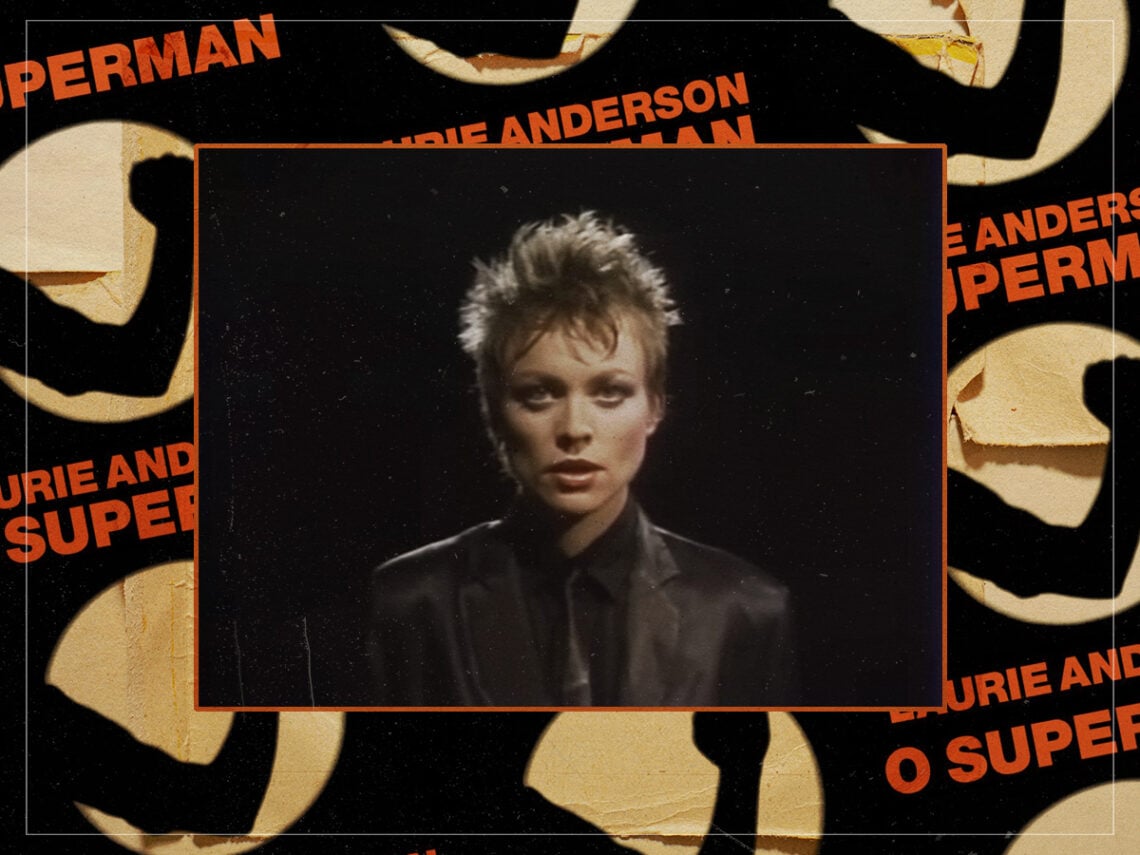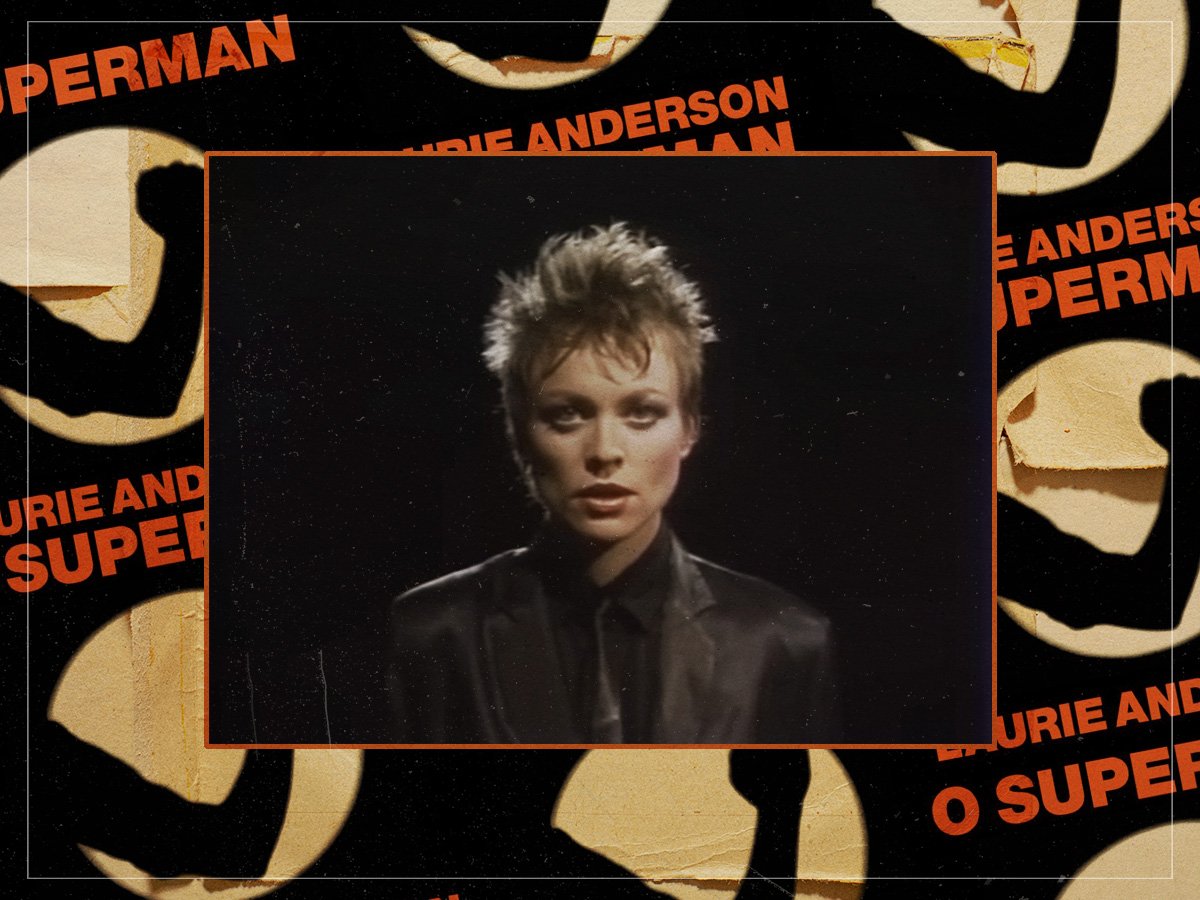
(Credits: Far Out / YouTube Still / Album Cover)
Tue 26 August 2025 8:00, UK
Whenever you go into a sort of strange, liminal, dissociative state, it usually takes a while to realise just how unsettling it is.
Or maybe it doesn’t, but perhaps it takes a while to realise why it feels that way. When Laurie Anderson created ‘O Superman’, she captured this feeling with “juxtaposed sinister and mundane imagery”.
Most people, when they listen to the song, are struck immediately by how uneasy it makes them feel. It’s easy to see why – anyone who listens to the track and gains comfort from it probably has a thing for dark, abstract music that places them in a strange state of contemplation. But the thing with ‘O Superman’ isn’t that it makes you think. In fact, it barely even does that. It’s the fact that it’s so strange and robotic and yet so slow and ambient that it captures a feeling we don’t even have a name for.
Before it was released, Anderson had already become something of a name in the art world because of her avant-garde work, specifically with the success of Duets on Ice. It was a strange concept, even by today’s standards, involving Anderson playing a violin (which she called a “ventriloquist’s dummy”) while wearing ice skates frozen in ice. She stopped playing when the ice melted. It was working with her friend, B. George, that pushed ‘O Superman’ into her lap, and even then, it took a while before it actually started to get radio play (not so surprisingly).
But perhaps even more surprising was that it wasn’t supposed to be a charting hit to begin with. At the time, it was sharing the same space as hits like ‘Kids in America’ and ‘Girls on Film’, a misplaced gem that seemed to be there by complete accident. A surprise hit that only caught on because of an unexpected endorsement from John Peel, ‘O Superman’ wasn’t like any other catchy commercial tune; it didn’t have a familiar verse structure, or a chorus, or any other formatting features littered all across the charts.
It starts with a string of disorienting “ha, ha, has” looped through an Eventide Harmoniser, with strange, cryptic lyrics that add to this strange sense of foreboding. “Hello? This is your Mother / Are you there? / Are you coming home?” Anderson says. “And I’ve got a message to give to you / Here come the planes.” Rather like a one-sided exchange where there is no receiver, at least, not at this current moment in time, it feels strange and dystopian because it lingers there – that mindless lamentation where nothing feels entirely real.
Most claim this to be the song that birthed modern, dissociative music, and it’s easy to see why. In fact, researchers have actually looked into the impact of songs like ‘O Superman’ on the listener, and how Anderson created a sound that felt like those strange, trance-like corners of our mind where that almost frozen state of contemplation comes from the two opposing forces of “sinister and mundane imagery”.
But while a lot of this impact comes from being detached from it, or from not knowing what the song actually means, it also feels as spine-tingling as it does because of its origin. We know from the lyrics that Anderson is talking about something dark. She even said so herself when it came to discussing its initial inspiration. But specifically, it was sparked by the Iran hostage crisis, carrying with it a disturbing message about war, violence and the perils of technology: a theme that still haunts us today.
“We were left with dead bodies, a pile of burning debris, and the hostages nowhere to be seen,” she said. “So I thought I’d write a song about all that and the failure of technology.”
Related Topics
